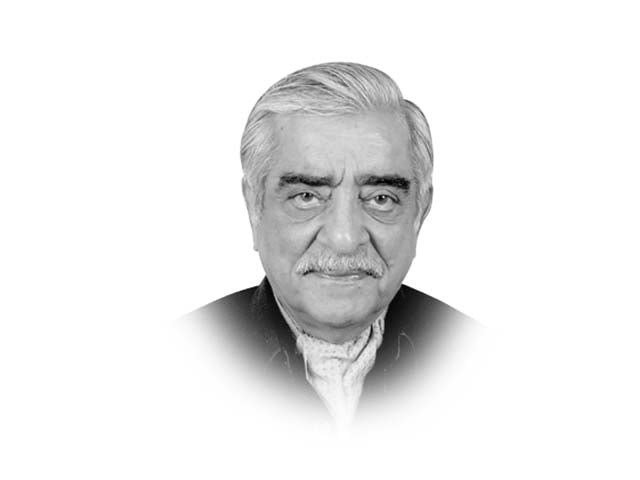Afghanistan’s deteriorating situation
Events in Afghanistan over the last four weeks have belied expectations after a successful period of development.

Afghanistan’s deteriorating situation
While it was generally conceded that the true test of the success that had been achieved would come after the new fighting season commenced by end April/beginning May, there was the fondly entertained hope that in the southern provinces enough development work had been done and enough good governance provided to ensure that the Taliban would not be able to recreate the local base of support that they had enjoyed in the past, and that the spreading Taliban influence in the north, which was attributed to the pressure exerted in the south, could be dealt with.
Events in Afghanistan over the last four weeks have belied these expectations.
Persons in Afghan army uniforms have, in rapid succession, carried out attacks on Nato bases, on the Afghan defence ministry and on local officials. Two days ago, an Afghan military pilot killed eight Nato soldiers at a Kabul airport. Such incidents have happened in the past but never quite as many in so short a time. It would be logical to assume that the American or Nato soldier would look askance at participating in joint Nato-Afghan operations. How then will Nato acquire the sort of military ascendancy Petraeus is seeking?
The demonstrations in Afghanistan against the burning of the Holy Quran in Florida by Pastor Jones were triggered, according to American observers, by Afghan President Hamid Karzai’s decision to highlight the issue in his speech in late March, and reflected his desire to win cheap popularity at the expense of fanning anti-American sentiment. But the most serious of these demonstrations — the attack on the UN office in Mazar in which a large number of foreign and local UN employees were killed — had other connotations. Among the demonstrators were a large number of ex-Taliban who had joined the much-touted reintegration programme. Even the limited success claimed by the reintegration programme has thus been called into question and, of course, doubts about the level of trust between Karzai and his American and Nato partners have been reinforced.
But, perhaps the most dramatic development was the escape from Sarposa Prison in Kandahar of more than 475 (mainly Taliban) prisoners through a 320-metre tunnel that the Taliban had dug under the prison over a five-month period. This was a prison where security had been revamped after an earlier jailbreak in 2008. The escape was through a tunnel that had been dug in the heart of Kandahar and from which tons of dirt must have been removed and dumped somewhere in the city. A lot of the local residents must have known that the tunnel was being excavated and chose not to report it. The CIA, MI6, Afghan intelligence, local police and, most importantly, Ahmad Wali Karzai’s own private spy network failed to detect this impossible-to-hide monumental enterprise. One concludes that hearts and minds have not been won in Kandahar, that the Taliban continue to have a hold on the population and that deployed intelligence networks are incompetent. Should these intelligence agencies be relied upon when they offer learned assessments in other areas?
In the northeast of the country, where the Haqqani network’s influence is high, the withdrawal of American troops from Korengal Valley and, more recently, from Pech Valley have opened the way for al Qaeda to set up camps in the area and for the Taliban to become more active. A district headquarter in Nuristan province was overrun by the Taliban and 50 recruits for the Afghan police force were kidnapped. A suicide bomber’s attack on a gathering of pro-government tribal maliks (elders) killed 10 of them and prompted Karzai to assert that the attack was the work of “cowardly foreign agents hired by our historical enemy”. The media, of course, interpreted this as a reference to Pakistan.
The point, of course, is that when the Americans say, much to our displeasure, that “there remains no clear path toward defeating the insurgency in Pakistan” they should also acknowledge that in the Afghan provinces abutting our tribal areas — Paktia, Paktika and Khost — the situation is far worse.
Elsewhere in the north, local warlords have created or resurrected ethnic militias and their prosecution of the Pashtun minority is giving these Pashtuns fresh incentives to join the Taliban. In the immediate aftermath of 9/11, some one million Pashtuns from these areas became internally displaced persons as the Tajiks and Uzbeks, retaliating for past Taliban excesses, forced them out of their villages and took over their land. Can this happen again?
Talk of reconciliation is also fanning the ethnic divide. Now that the Americans seem to be on board for unconditional talks with the Taliban, the Tajiks and other minorities are expressing opposition. Theoretically, they are doing it because they do not want the Afghan constitution to be changed but, in reality, it is because they fear that they will lose the inordinate share of power they now enjoy. Can reconciliation proceed?
Opium prices have risen and, as a result, cultivation is increasing much to the delight of drug dealers and warlords. Will this prompt them to launch a concerted effort to thwart efforts at peacemaking?
The inability of the Karzai administration to find a solution to the near collapse of the Kabul Bank has led the IMF to cut off aid and this in turn has affected the attitude of other international financial institutions and donors. Whether this means a drastic revamping of monetary regulations or not, it is certain that this has made a bad economic situation even bleaker.
What can and what should Pakistan, the country most directly affected, do? A few suggestions will follow in my next article.
Published in The Express Tribune, April 29th, 2011.















COMMENTS
Comments are moderated and generally will be posted if they are on-topic and not abusive.
For more information, please see our Comments FAQ